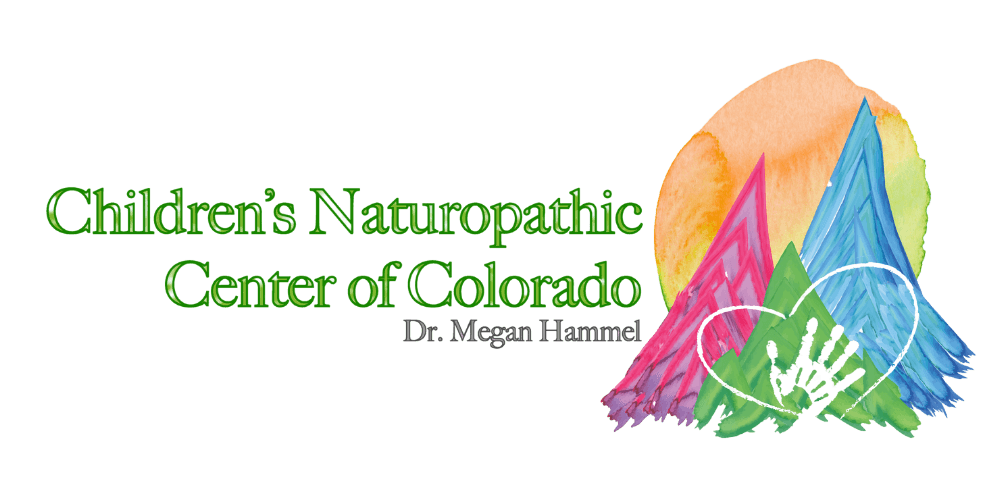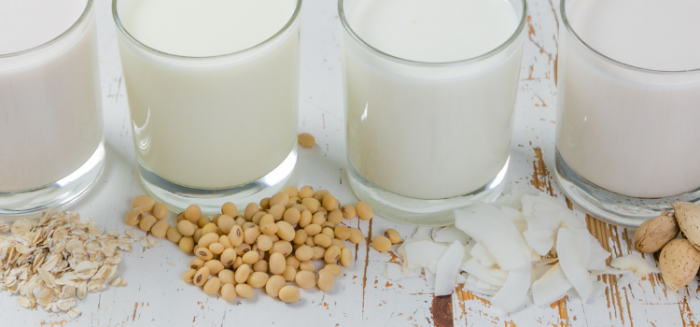Dairy alternatives are as popular as ever, with around 30 million Americans experiencing varying levels of lactose intolerance by the age of 20. As more research emerges proving the environmental and health benefits of switching to non-dairy alternatives, new products continue to hit the shelves and make waves in the ever-growing community of plant-based milk fans. There’s a dairy alternative for everyone, with plenty of variation in nutrition, texture and taste.
Why switch to non-dairy milk?
Cow’s milk is widely recommended, especially in children, for it’s bone-strengthening benefits. While cow’s milk does provide many rich and valuable nutrients, there are plenty of dairy alternatives on the market in close competition. Furthermore, cow’s milk is regularly linked to issues of indigestion and skin concerns such as acne and rosacea.
If you’re struggling with weight gain, troublesome skin and/or a regularly upset stomach, eliminating dairy from your diet may be the key. With so many delicious and nutritious options on grocery store shelves, dairy alternatives are more accessible than ever.
Note: switching to a completely non-dairy diet, except in the case of known allergies or intolerances, is not recommended for children under 5 years old. Be sure to consult with your pediatrician before eliminating dairy from your child’s diet.
Soy Milk
Soy milk is made by combining soybeans with filtered water. Some brands may also include thickeners to increase length of preservation and general consistency. Soy milk was one of the first non-dairy milks to hit shelves, making it a classic dairy alternative.
It may not be the trendiest, but the benefits of soy milk are tried and true. First and foremost, soy milk is typically one of the cheapest options on the shelf, and one with several flavor varieties. Flavored soy milk is a great option for coffee and cereal; due to its naturally less sweet nature, plain soy milk is an excellent cow’s milk alternative in savory cooking.
Soy milk is possibly the most controversial of the currently available non-dairy milks, mainly because of the controversial nature of soy itself. Soy is known to be rich in nutrients and is often linked to health benefits like improved heart health and blood sugar levels. Conversely, there is a common concern about excessive soy contributing to increased risk of breast cancer and feminized effects in men. These fears are generally due to the idea that soy mimics estrogen; research suggests that this is not the case.
Overall, soy is a rich source of fiber, vitamins and antioxidants. Soy milk is one of the most widely available and accessible non-dairy milks due to its low cost and long-term popularity. Those who lack soy allergies may consider including soy milk into their diets for nutritional health benefits and a delicious alternative to cow’s milk.
Almond Milk
Likely the next most popular non-dairy milk, almond milk is created by blending almonds with water, then straining to remove any solid pieces. Almond milk is known for its sweet, nutty flavor and creamy texture that is similar to cow’s milk.
Almond milk is also very accessible, as the dairy alternative is available at most grocery stores and easily made at home. Commercial brands of almond milk also come in a variety of flavors and levels of added sugar. Many brands also include added ingredients for enriched vitamins and minerals. Almond milk varieties with added calcium are great alternatives to traditional dairy products.
Almond milk is especially high in vitamin E and low in calories. Flavored almond milk makes a delicious coffee creamer while plain almond milk is common in everyday cooking.
Coconut Milk
Coconut milk is harvested from the white flesh of mature coconuts. This non-dairy milk is equal parts sweet and creamy, while simultaneously rich and thick. Coconut milk has long been a staple in Asian and African cooking, but became popularized in
the Western world as the non-dairy movement continues to thrive.
While relatively high in calories, coconut milk is equally rich in essential vitamins and minerals. Coconut milk contains significant portions of the current recommended daily values of iron, magnesium and potassium.
In terms of taste, coconut milk is deliciously sweet, making it the perfect dairy alternative for coffee creamers and baked goods. It’s also a staple in many variations of curry. Like almond milk, coconut milk is fairly easy to recreate at home; there are plenty of recipes available online, many including just two ingredients.
Oat milk
The new kid on the block, oat milk is probably the most trendy dairy alternative on the shelves. Oat milk is made by blending soaked steel oats, then straining with a cheesecloth.
Because oats absorb water much more easily than nuts, oat milk is known to have one of the creamiest textures of all the plant milks without having to add any extra ingredients. This makes oat milk a wonderful ingredient in smoothies, protein shakes, pancakes and other baked goods. Coffee shops around the US are also beginning to include the ever-trendy oat milk on their list of non-dairy options. Unsweetened oat milk can also be used in savory recipes and for thickening soups and stews.
Nutritionally, oat milk offers plenty of fiber, protein, vitamin B, iron and calcium. Oats themselves include a type of fiber called beta-glucan that has been linked to gut health and immunity.
While not quite as common as the beloved soy and almond milks, the trendy oat milk is on the rise. You can find oat milk at most major grocery stores or whip up a batch at home, with the only ingredients being steel oats and water. About
About Children’s Naturopathic Center of Colorado
Dr. Meg Hammel has devoted her practice to the naturopathic care and treatment of children in Colorado and believes every child deserves health. Her clinical background lies in family medicine and pediatric wellness.
Dr. Hammel strives to supplement traditional pediatric care with natural medicine in order to create a holistic healing plan for all patients. Children’s Naturopathic Center of Colorado is located at 3729 W 32nd Ave. Denver, CO 80211. The office can be reached by telephone at 720-519-2913 and also accepts online bookings (just click here!).
`

